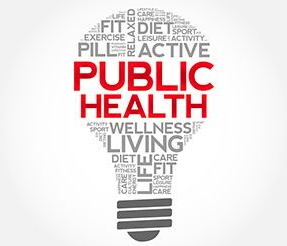Welcome back! Last week, we talked about Exploding Head Syndrome. If you missed this blog and would like to catch up, click HERE.

This week, I became curious as to what the top 10 public health issues might be in the United States, as opposed to other countries. Do you know what they are? Grab a cup of coffee and let’s chat…
According to The WHO, the top 10 global issues to keep track of are as follows:
- Build global solidarity for worldwide health security: This means they will be working with countries to improve their own preparedness for pandemics and health emergencies.
- Speed up access to COVID-19 tests, medicines and vaccines: A top priority in 2021 will be to continue our work across the four pillars of the ACT-Accelerator, to achieve equitable access to safe and effective vaccines, tests, and treatments and to ensure that health systems are strong enough to deliver them.
- Advance health for all: One of the clearest lessons the pandemic has taught us is the consequences of neglecting our health systems. In 2021 WHO will work across all three levels of the Organization and with partners worldwide to help countries strengthen their systems.
- Tackling health inequities: The WHO will work with countries to monitor and address health inequities related to critical issues such as income, gender, ethnicity, living in remote rural areas or disadvantaged urban areas, education, occupation/employment conditions, and disability.
- Provide global leadership on science and data: WHO will monitor and evaluate the latest scientific developments around COVID-19 and beyond, identifying opportunities to harness those advances to improve global health.
- Revitalize efforts to tackle communicable diseases: WHO and partners have worked resolutely to end the scourge of polio, HIV, tuberculosis and malaria, and to avert epidemics of diseases like measles and yellow fever. COVID-19 set back much of this work in 2020. So in 2021 they will help countries get vaccines for polio and other diseases to the people who missed out during the pandemic.
- Combat drug resistance: The new Global Leadership Group for Antimicrobial Resistance, which includes industry chiefs as well as political leaders, will meet for the first time in January to discuss ways to accelerate momentum on this critical issue.
- Prevent and treat NCDs (Non Communicable Diseases) and mental health conditions: It is vital to ensure that screening and treatment programs for diseases such as cancer, diabetes and heart disease are accessible to all who need them when they need them.
- Build back better: addressing climate change and health, reducing air pollution and improving air quality, can play a major role in making this a better, greener, healthier world.
- Act in solidarity: there is a need to demonstrate greater solidarity – between nations, institutions, communities and individuals, closing the cracks in our defences on which the virus thrives.

The Concerns of The United States of America
So how do the global concerns of the WHO stack up against the top 10 medical concerns of the citizens of the United States of America? You may be surprised.
According to the CDC, our number one concern in the United States is:
1. Alcohol-Related Harms
Approximately 88,000 deaths per year in the United States are attributed to excessive alcohol consumption. Health risks of excessive alcohol use include injuries such as motor vehicle crashes, falls, drownings, and burns; violence such as homicide, suicide, and sexual assault; alcohol poisoning; risky sexual behaviors; and miscarriage and stillbirth among pregnant women. Along with these health risks come long-term health risks such as high blood pressure, heart disease, stroke, liver disease, and digestive problems; cancer; learning and memory problems; mental health problems; social problems; and alcoholism.
2. Food Safety
One in six Americans each year will fall victim to a foodborne illness resulting in 3,000 deaths this year. Foodborne illness is preventable, and the CDC and USDA take a leading role in promoting food safety at the federal level.
3. Healthcare-Associated Infections
Every day, about one in 25 patients in hospitals acquire an HAI such as central line-associated bloodstream infections, catheter-associated urinary tract infections, and surgical site infections.
4. Heart Disease and Stroke

Heart disease and stroke are leading causes of death in the United States. About 610,000 people die of heart disease each year. There is much evidence that eating a plant-based diet is key to getting this and other health issues under control. If you would like more information about this topic, please refer to our prior blogs by our guest blogger, Dr. Ross, DO.
5. HIV
Approximately 1.2 million Americans are living with HIV, and about 13 percent do not know they are infected. Nearly 7,000 people per year die from HIV and AIDS. Hard to believe we have been searching for an answer to this health concern since the early ’80s.
6. Motor Vehicle Injuries
More than 32,000 people die and another 2 million sustain injuries from motor vehicle accidents each year. One-third of deaths involve drunk driving and almost another third involve speeding. This is probably one of the most easily preventable health concerns we have as Americans. Stop speeding and if you drink, don’t drive.
7. Nutrition, Physical Activity, and Obesity
Most people are aware that poor nutrition, lack of physical activity, and obesity are causing numerous health problems, but what they don’t consider, or maybe aren’t even aware of, are the reasons behind these issues. Food deserts still exist in our country (places that don’t have access to fresh vegetables and fruit), issues such as parents working two jobs to support their families leaving little time for exercise and lack of access to surgical repairs of injuries that limit function are just two reasons that lack of physical activity may exist, creating obesity issues for Americans. Obesity is also driven by mental health issues, such as a person reacting to rape, PTSD, depression, an eating disorder, or abuse, by overeating.
8. Prescription Drug Overdose

The CDC reports that deaths from prescription opioids like oxycodone and hydrocodone have quadrupled since 1999. This has led to new guidelines being put in place for physicians that some say have created a secondary issue in that people experiencing pain from chronic illness cannot get relief, resulting in suicides. According to LYNN R. WEBSTER, MD; President, American Academy of Pain Medicine; Vice President of Scientific Affairs, PRA International
“Our society has little comprehension of the nightmare experienced by people who live every day with chronic pain. To make matters worse, the U.S. healthcare delivery system is short on insurance coverage for the full range of interdisciplinary therapies that could make a difference. As a result, patients are caught in the crossfire between law enforcement efforts and physicians who have fewer, and less effective, tools available to treat patients whose pain approaches levels unimaginable by most people”.
9. Teen Pregnancy
Teens need support from parents and other trusted adults, who can play an important role in helping them make healthy choices about relationships and sexual activity, the CDC advises.
10. Tobacco Use
The CDC recommends increasing the price of tobacco products, establishing statewide smoke-free policies to protect nonsmokers from secondhand smoke, and sustaining tobacco control program funding. Smoking continues to be the leading cause of preventable disease and death.
So there you have it, Dear Reader. This was an important topic to research because if we can’t or won’t identify the issues we face, then we certainly cannot find the answers to our problems. We clearly have a lot of work cut out for us.
Have a fantastic week, and we will meet here again next Wednesday to share another Cup of Coffee.
Editors note: This blog is not a replacement for sound medical advice, and many diseases, disorders, and syndromes have symptoms that overlap. Only a qualified medical professional can diagnose you. That said, if you think this blog may be helpful to others, please hit the Facebook Icon and share it on your personal pages. Thank you for reading us, we really do appreciate you!

This article is a good read. Good thing that I was able to come across this post because it will be very useful for managing the various health issues and conditions that many of us are currently dealing with.
Brooklyn Williams
https://chummysorganix.com/
We all know that there are a lot of health challenges that we are experiencing nowadays. This article was able to provide awareness about the different health concerns that we’re dealing with these days. And, I’m glad that I was able to read this article because this would be very helpful with how we manage different health challenges and conditions that many of us are now going through.
Liam Wilson @ primabee.com
Thank you for this informative blog article, Linda. It helped me keep up and know essential information concerning our health and wellness. With the pandemic we’re experiencing now, this article taught me to prioritize and focus on our health and sanity more than anything else.
– Dan White
https://joyorganics.com/
Perhaps some perspective can help to disabuse you of the fear porn known as Global Warming (no diff than non-modified by GoF seasonal flu called CV). The total of energy created by mankind, through out human history, doesn’t even heat the earth as much as a single days inSOLation. There, doesn’t that make you feel better. Both got to their intended fear porn levels by the usual/same propaganda by MSM as COVID. There are agenda’s. I suggest the World Economic Forum if you want to know direct from the Masters Mouth.
All the issues addressed in this blog are important. But there is one issue…..Global Warming…..which, in my mind is the most important of all. If the world does nothing to halt the rapid heating of our planet we will no longer have a place to live and all the issues listed will really become quite insignificant in the big picture. So while we deal with the majority of health concerns, let us focus the majority of our attention and resources on solving the problem of global warming that is the biggest threat to our health over the next 30-50 years. What can we as individuals do?……we can transition our diet to whole plant foods, replace our gas guzzling cars with electric ones, vote for leaders who will help reduce our carbon foot print on the world, and we can focus on working together as one world. Perhaps we can follow the lead by Greta Thunberg? Changing our behavior may not be easy, but the alternative of doing the same as we have been doing is leading our world to a place we do not want to be. So what will it take for you personally to change your behavior?
Excellent points, Dr. Ross. I was very surprised to not see this on the list. As with most issues, once it becomes politicized, it’s very difficult to break through and find the truth with a capital T. Thank you for your comment.